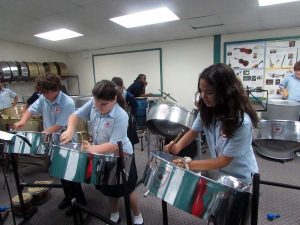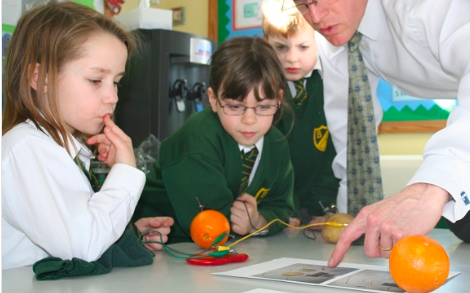But how a local school can do its bit to such a global need? There are many ways to embrace the international agenda. Through the whole school or a year group curriculum. Our education experts suggested ten accessible and straightforward ideas for any schools to embed internalisation agenda:
1.International school party event
Everyone likes a party. An international event project is a great way to engage a whole school or even a school community. If your school has an international low diversity mix ‘Around the world in 45 minutes’ overall school performance can be the answer. A whole school event offers an opportunity for each class to research and presents the cultural and traditions of a chosen country. Pupils can create a type constructed poster, put on a performance or replicate a traditional event.
Alternatively, in a culturally diverse school’s community, an international family evening is always a great way to celebrate diversity. Global performance from children and their families. An excellent old international quiz (
http://quizly.co/how-well-do-you-know-the-world/). Also, everyone loves to bring and share traditional food dishes.
2. International Festivals Celebration
Of course, the list of unusual and exciting cultural celebrations is endless. From Chinese New Year, Diwali to Hanukkah, Eid, Day of the Dead and more. Take your pick. Furthermore, pupils can actively research and embrace less known cultural traditions, for example, Midsummer Celebrations of Scandinavians or Japanese Spring Blossom Festival. Just leave the research to your pupils. Encouraging learners to choose to research a traditional event of their choice constitute a truly dialogical and thus more impactful approach to teaching.
If you would like to get some external assistance, there are several cultural workshops listed at the Book School Workshops website.
3.Cultural workshops
Many excellent cultural workshops offer unique insights into different cultures. The cultural workshops company deliver experiences directly at your school. Book an artistic workshop such as Australian Aboriginal Art and Irie Steelpan Workshop and enjoy working with an aesthetic specialist. Besides, no paperwork, planning or managing to do (always a bonus for a busy teacher).

4. Countries linked topical curriculum structure
Structuring whole school curriculum around a chosen country requires advanced planning. However, a positive return initial time investment guaranteed. So how to do it? Start with some mapping so that all of the world continents get geographical coverage. Each class get a country assigned for a term or even a year. The class teacher prepares first decorations, which can enhance throughout the year with contributions from the pupils’ work. Of course, the contributions of ideas from the class pupils is a must to sustain interest and engagement. Lastly, a whole school event or international festival will help to showcase everyone’s efforts.
5.International trip
There are several UK school travel provider who offers artistic style travel experiences. The trip can be topical, e.g. language, historical or geographic places of interest. Alternatively, an explorative country trip provides multiple angles for exploration, which can combine sports, culture, international links and many other elements. Companies like NST
https://www.nstgroup.co.uk/primary-school-trips and
https://www.travelbound.co.uk/school-trips/6. International food day
An international food day is a prevalent activity in many schools. The day can be limited to a single day or stretch over a while with cross-curricular exercises. Similarly, the day can involve just one year group, the whole school or a family event. Again the key with success is to get pupils to engage in planning and event decision-making. Below is a brief plan of the food day event, which is useful as a starting point for planning:
- Choose countries in the subgroup;
- Conduct generic research into traditions and culture of the chosen country including food;
- Choose a dish to prepare. Bear in mind to have food suitable for the occasion if you are planning to share it later.
- Plan preparation, write cocking instruction, prepare ingredients and decide on the food preparing space. (To make the process simpler – order ingredients on-line with delivery to school)
- It is a good idea to invite parents to helpers on the day.
- And good luck. But seriously, enjoy the day – it will be great and rewarding fun
7. International school guest visit to your school
If you are living in a multicultural community, the great idea is to invite a community member or a pupil’s relative to share culture and traditions with the targeted year groups. The good idea is to communicate in advance to make sure that a visit will include plenty of international activities to encourage students active learning and engagement.
8.A class trip to the international community within your geographic location
Many of British cities are home to a range of international communities’ groups. If your school is proximity to a significant international university, you will have access to many international cultural societies. Arrange a visit and discuss some exciting day program for a guaranteed educational event. However, it is a good idea to engage pupils in prior research activities to make the visit more meaningful to your learners.
9. An international cartoon week
If cooking sounds like a daunting paper filling exercise prospects, a cartoon week offers H&S hassle-free option. Everyone love cartoons+abundance of online resources from across the world = active and fun learning. Do the same steps as in cooking minus the cooking and do get some popcorn for presentations and cartoon watching.
10. Pen pal initiative
There are several Pen Pal website (
https://www.interpals.net/app/about) that have been going sing early 90th. Yes, the idea of exchanging ‘real letters’ are still very much alive, and many people across the world enjoy language practice and making new friends through the use of pen and paper. Note, this activity may be more suitable for older age learners or to do it as a whole class.



